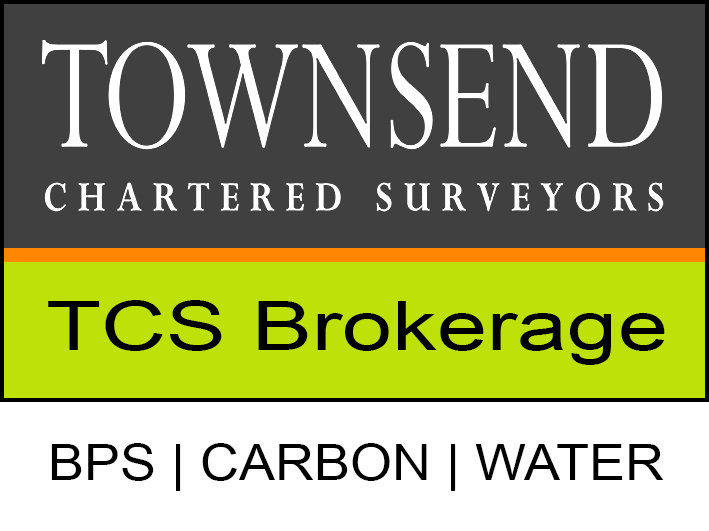Water Abstraction Licences
The trading and transfer of water abstraction licences is a specialist practice, and our team has years of experience in this area with ex-Environmental Agency employee experience. This combines with our valuation, expert witness and litigation expertise and the UK-wide market exposure only TCS Brokerage can offer with over 35 years’ experience of trading farm quotas/entitlements across the UK.
Water abstraction (extraction) for industry, agriculture and drinking water, is regulated by the Environment Agency (EA) through the abstraction licensing system. Abstraction licence trading allows a licence holder to sell their water rights to a third party. This is beneficial because, with the exception of high-flow river water, no new licences are available throughout most of England and Wales. The only means of securing a new, year-round supply of water is, therefore, through an abstraction licence trade or by purchasing it from a water company.
In principle, the EA encourages licence trading because it allows them to allocate water resources in a way that meets demand and supports the environment without the abstraction of additional water. The EA is however, subject to the requirements of the Water Framework Directive which demands that they reduce licensed abstraction in areas where water resources are under stress and abstraction is unsustainable. Most of the rivers and groundwater supplies (aquifers) in the east and south east of England are calculated to have unsustainable levels of abstraction with large parts of Wales, the south west and north of England also affected. In an effort to return abstraction to sustainable levels the EA has recently started to use water trading as an opportunity to reduce licence volumes. This policy has significantly suppressed licence trading activity in recent years.
Abstraction licence trades fall broadly into three types:
- ‘Water transfers’ where the abstraction licence is included within the sale of land.
- ‘Non-regulated trades’ where there is no requirement to change the terms or conditions of the licence, for example; supplying water by pipe to a neighbour to use for the same purpose.
- ‘Regulated trades’ where the point of abstraction or its purpose changes.
Because there is no requirement to change the terms and conditions of a licence in a ‘transfer’ or ‘non-regulated trade’ the EA has minimal involvement in these processes. ‘Regulated trades’ on the other hand, allow the EA to change the conditions of the licence including making quantity reductions.
Restrictions on abstraction licence trades
The EA generally limits the area in which trades can take place to within the same groundwater and river catchment. This is to ensure that abstraction impacts are not transferred from one catchment to another. Exceptions can be made if significant environmental benefits are likely to arise as a result of the trade.
Where the trade involves a change in purpose, the EA will apply a consumptive loss factor. This takes account of the change in the proportion of water that is returned to the environment after use. More water will be returned from vegetable washing, for example, than from spray irrigation and the quantities allowed for the trade will reflect this change in purpose. In water stressed parts of southern and central England, the EA applies a sustainability reduction which caps the quantities allowed for a trade to the peak historic licence uptake between the years 2005 and 2015 (2000 to 2015 for spray irrigation). In the east of England where resources are even more stressed the EA caps tradable quantities to the average annual licence use between 2007 and 2012. The combined effect of these sustainability and consumptive loss reductions can mean that there is a significant difference between the amount of water stated on the licence and the amount available to trade.
The EA divides England and Wales into 100 separate ‘water management catchments’. Each of these has a bespoke abstraction licensing strategy which sets out how water resources will be managed by the EA. Their approach to abstraction licence trading varies for each catchment according to local conditions but the same basic rules apply across the board:
- Trades must occur within the same waterbody and/or aquifer
- Surface water licence trades can generally only be made downstream
- Most trades are subject to a ‘sustainability reduction’ which removes any spare or previously unused water from the system.
- Changes in consumptive losses must be accounted for. (An irrigation licence returns less water to the environment than an equivalent vegetable washing licence. The increase in consumptive loss is deducted from the available quantity).
EA trading rules are becoming increasingly restrictive in the more water stressed eastern and southern parts of the country. For example, their Anglian Area trading policy issued in December 2020, applies a substantial ‘sustainability reduction’ to licence trades, requiring that the quantity available to the ‘donor licence’ is reduced to the average annual licence uptake between the years 2007 and 2012, before a trade can be considered.
The combined effect of sustainability reductions and the consumptive loss rule mean that there can be a significant difference between the amount of water stated on the licence and the amount available to trade.
Although the EA is taking steps to make licence trading easier, including the development of an online trading platform and the introduction of temporary (rapid turnaround) trades, the limits on the spatial extent of potential trades and the risk of losing a large part of the licence has placed a strong chilling effect on regulated trading activity. Informal (unregulated) trades are however, very common, particularly within the agricultural sector. Because of this informal nature, it is not possible to place a figure on the number of unregulated trades taking place but industry experts estimate that up to 25% of agricultural abstraction relies on traded water.
ABSTRACTION LICENSING 2021
The wet winter across the UK in 2021 replenished aquifer groundwater levels which were getting dangerously low after several dry winters. The dry spring however caused many farmers to draw on their abstraction licences earlier than usual, promoting an increased interest in short-term trades as a means of making up anticipated water deficits. Heavy rainfall from May onwards alleviated the risk of potential shortages which cooled early interest in temporary water trades.
ABSTRACTION LICENCE ESTIMATED VALUE
The value of an abstraction licence can be broken down into its ‘asset value’ (the uplift in land or property value attributable to a licence) and its ‘use value’ (the amount a buyer will pay to use the water). It is difficult to get a ‘fix’ on market values due to the informal nature of most trades and the variations in local water demand and scarcity. ‘Asset value’ also varies according to the terms of the abstraction licence (including its expiry date and any constraining conditions) but as a rule of thumb, the increase in property value attributed to a licence can be up to £10/m3 and in high water demand catchments higher.
Licence ‘use value’ depends largely on how the water is supplied. For agricultural irrigation in 2021, the ‘use value’ is approximately £0.50/m3 broken down as follows:
- Water right: £0.16/m3
- Supplied to field (pumps and pipeline) £0.17/m3
- Application as irrigation (including labour and machinery) £0.17/m3
LONG TERM PROSPECTS FOR ABSTRACTION LICENCE HOLDERS
The EA will continue to ‘claw back’ licences in over-licenced, water-stressed catchments in an effort to meet its 2027 Water Framework Directive sustainability obligations. Holders of existing ‘time limited licences’ are likely to take the brunt of these reductions although ‘non-time-limited’ and ‘grandfather rights’ type licences may also be affected in some water critical/high conservation areas like the Norfolk Broads.
The UK Government is currently working on bringing the abstraction licensing regime into line with the Environmental Permitting Regulations (EPR). Although the effects of this are unlikely be felt on the ground before 2030, the EPR is likely to give the EA increased scope to address historic over-abstraction, particularly in the south and southeast. This will affect all sectors, reducing the quantity of water available to: public water supply, industry and agriculture. These regulatory factors combined with the reduction in summer rainfall expected with climate change will continue to put pressure on the UK’s water resources, driving up both the ‘asset value’ and ‘use value’ of sustainable abstraction licences into the foreseeable future.
Both the EA and Defra recognise the need to make better use of high flow and flood water and a new round of RPA grants for water management schemes has been announced, including DEFRA’s recently opened Farming Investment Fund, which will provide grants of up to £25,000 for on farm water storage infrastructure including reservoir creation.
Support has also been provided by Government to help develop innovative, multi-beneficiary flood reduction and water supply schemes under the ‘flood and coastal resilience innovation programme’. It is likely that we will continue to see funding streams of this nature being rolled out over the next few years.
If you are interested in either selling or buying water abstraction licences, Townsend Chartered Surveyors trade UK wide and can advise on applying for new licences and other water related issues.
Water services
We also offer the following services:
New licence applications • Licence Renewals • Hydrological Assessments • Variations and Trades • Abstraction Licensing • Recovering ‘Lost’ Licences • Licence Appeals, Expert Witness • Data and Technical Services • Long Duration Licence Applications • Salinity and Water Quality Monitoring • Groundwater Investigation Consents • Water Features Surveys • Groundwater Level Monitoring • Groundwater Model Interpretation • Flow Gauging; Thin Plate Weirs, Spot Gauging, Area Velocity Meters • Pumping Tests • Pumping Tests and Hydrological Impact Assessments • River Restoration • Wetland and Wildlife Habitat Creation • Natural Flood Management • Managed Aquifer Recharge • Flood Risk and Land Drainage Consent Applications • Constructed Wetlands and Reedbed Treatment Systems • Water Management Grants • Project Management • Whole Farm Abstraction Strategy Planning • Contractor Provision and Management • Negotiation with Statutory Bodies • Abstraction Compliance Management • Abstraction Licence Review and Risk Analysis • Grant Applications • Abstraction Intake Design (Weirs, Sumps and Pumps).
Further information
- 2020 TCS Brokerage UK Market Report – here

Hugh Townsend
FRICS. FCIArb. FAAV.
01392 823935
htownsend@townsendcharteredsurveyors.co.uk

Alasdair Squires
BA(Hons).
01392 823935
asquires@townsendcharteredsurveyors.co.uk

Paul Bradford
MSc. MCIWEM C.WEM
01392 823935
water@townsendcharteredsurveyors.co.uk


